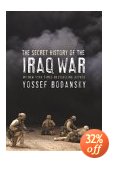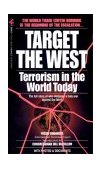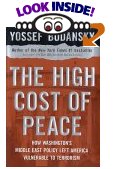|
|
Extraditions: Flight to Freedom?
SAJI CHERIAN
Post September 11, there has been a virtual deluge of wanted criminals,
including many who have linkages with terrorist groups and operations, deported
from foreign shores into Mumbai's Chhatrapati Shivaji International Airport,
bringing joy to the police apparatus in the country, and especially the city
cops of Mumbai. A majority of these criminals have been deported from Dubai, a
favourite haunt for the crime-syndicates, as the city-state apparently came
under increasing pressure from the US and other countries to take action against
the latter. However, the latest name that may be added to the list is that of
mafia don Abu Salem, as a result of a Lisbon High Court order on July 19, 2004,
for his extradition to India. Salem is among the prime conspirators in the March
1993 multiple Mumbai Blasts, the largest single act of terrorism in India, in
which 257 persons were killed, and another 713 injured. This carnage had been
orchestrated by the Dawood Ibrahim gang, at the behest of Pakistan's Inter
Services Intelligence (ISI), with explosives and logistics support, as well as
subsequent safe havens for the perpetrators, provided by Pakistan.
Organised crime syndicates, especially the one led by Dawood Ibrahim, have long
had links with a range of terrorist groups, including a complex web of
connections that have been exposed during investigations into the Al
Qaeda and Taliban network. As a result, on October 16,
2003, the US Department of Treasury announced that it was designating Dawood
Ibrahim, under Executive Order 13224, a "Specially Designated Global Terrorist".
Investigators had found that Ibrahim had been sharing his smuggling routes and
infrastructure with Al Qaeda and had been funding the Lashkar-e-Toiba
(LeT).
In India, Dawood's men have been involved in numerous crimes including contract
killings, murder, land-grabbing, extortion, drug-running and the 1993 Mumbai
bomb blasts. The gang's nexus with terrorists operating in Kashmir was first
established when, on August 9, 1998, the Jammu and Kashmir (J&K) Police
eliminated the Hizb-ul-Mujahideen's (HM)
top Kashmir Valley 'commander', Ali Mohammad Dar, alias Burhanuddin Hijazi.
According to Frontline's Praveen Swami, hundreds of sheets of
hand-written notes meant for Syed Salahuddin (the Hizb's 'Supreme Commander',
based in Pakistan), were recovered from Dar's temporary hideout in Srinagar. One
of the note stated: "Ways and means should be found to launch the movement in
India on (a) priority basis." He suggested that a broad linkage be established
with the Dubai underworld. "Kingpins of the underworld (should) be contacted to
have the weapons and ammunition launched for us through other possible ways." "A
cell of three persons" would work "to develop relations with underworld beings
like Dawood Ibrahim and trying to have a project of counterfeit currency."
Each deportation of a high-profile Dawood lieutenant is, consequently, seen as a
significant step towards bludgeoning the criminal-terrorist-network into
submission.
Over the past two years, a noteworthy 'who's who' of the Mumbai underworld have
been deported into India. The most prominent among these include Dawood
Ibrahim's assistants, Riyaz Siddique and Raju Sharma (deported on May 29, 2003);
Mustaffa Mohammed Umar Dossa alias Majnu Sheth (deported on March 19, 2003);
Dawood's younger brother Iqbal Sheikh Kaskar, and Ejaz Pathan, a 1993 Mumbai
serial blast accused (deported on February 19, 2003); Mohammed Altaf, accused in
the December 2, 2002, bus blast in Ghatkopar, Mumbai (deported on January 26,
2003); Muthappa Rai, a Dawood Ibrahim aide (deported on May 30, 2002); and Aftab
Ansari alias Farhan Malik, main accused in the American Center shootout in
Kolkata (deported on February 9, 2002). Recently, the Mumbai Joint Commissioner
of Police (Crime) Satya Pal Singh (now transferred), disclosed that Iqbal Mirchi,
another one of Dawood Ibrahim's trusted lieutenants, had been detained by
enforcement agencies in the United States and is likely to be deported soon. The
most recent deportation from Dubai has been that of Dawood-aide Tariq Parveen,
on July 19, 2004. Parveen faces charges under the Maharashtra Control of
Organised Crime Act, 1999 (MCOCA)
in connection with the Sara-Sahara Shopping Complex land grab case, in which
Dawood's youngest brother Iqbal Kaskar has already been charge-sheeted.
But the extraditions to India may just be the beginnings of a new set of
problems for authorities here, as the process of securing convictions for these
criminals is proving far more difficult than securing their arrests. Given
India's extraordinarily sluggish judicial system, poor investigative mechanisms,
and the ubiquitous and persistent threat of organized criminal groups,
convictions in even the most high profile cases have been elusive.
Thus, on August 7, 2003, a Sessions Court in Mumbai discharged Iqbal Kaskar,
Dawood Ibrahim's younger brother, in a case pertaining to the murder of a
Customs informant for 'want of evidence', leaving the sibling now charged only
in a case relating to a relatively minor land-grabbing offence.
In another appalling incident that highlights the incompetence of the police
authorities, another two deported criminals walked free as a result of the
Police's failure to produce the evidence it had collected. Raju Chikna alias
Rajkumar Ramdas Sharma, a key member of the Dawood gang, and wanted for
kidnapping and murder of a rival, was deported on May 29, 2003, from Dubai.
Evidence against Chikna included five tapes recording the conspiracy to murder
being plotted by Chikna, Dawood, and Chhota Rajan. The Tapes were turned over to
Crime Branch, but the Court was later informed that the former ''could not find
the tapes''. Chikna walked free on May 11, 2004, and has apparently flown back
to Dubai to rejoin his trade.
Riyaz Ahmed Siddiqui, wanted for two murders, was deported on May 29, 2003 from
Dubai. The evidence against him comprised solely of the First Information Report
(FIR) filed against him, as the case papers were 'missing', as were witness
statements. Siddiqui was released on a bail of Rupees 25,000 in September 2003.
Charges against Saquib Nachen, a key accused in the Mumbai blasts of 2002-2003,
and eight others under the Prevention of Terrorism Act (POTA),
were dropped for the first Ghatkopar Blast that took place in a bus in the
Mumbai suburb on December 2, 2002. Though police claimed he was the main
conspirator, there was no material evidence on record. [Nachen remains under
detention with charges under the Prevention of Terrorism Act (POTA) for his
involvement in three other blasts in 2003].
On April 17, 2004, Muthappa Rai, was set free from a Bangalore jail, two years
after he was deported from Dubai, following his acquittal by a court in the last
of the nine cases against him. The Court acquitted Rai and five others on April
13, 2004, in a case relating to the murder of a real estate agent in Bangalore
three years earlier, and held that the prosecution had 'failed to prove
charges'.
Abu Salem's extradition has additional complications, and there is little
possibility of his eventually facing condign punishment for his outrageous
crimes. The Lisbon High Court's extradition order comes with a rider: the Court
has ordered that Salem can only be tried for minor offences such as passport
forgery and possession of illegal weapons in India. Even if he chooses to plead
guilty, Salem could walk free in a few years, after serving the maximum possible
sentences for these offences concurrently.
The greatest embarrassment of the future may well be Dawood Ibrahim himself.
Ibrahim figures prominently on the famous 'List of 20' handed over by the
Government of India to Pakistan, allegedly of terrorists currently enjoying safe
haven in that country. The predecessor Atal Behari Vajpayee regime at Delhi had
led a shrill propaganda campaign - before an abruptly initiated 'peace process'
catalyzed a deafening silence on the issue - on the importance of the arrest and
deportation of the terrorists on this 'List of 20', at one time, predicating any
possibility of negotiations with Pakistan on the fulfillment of this demand,
among others. The problem, however, is that the Mumbai police apparently does
not have the case papers of the various crimes personally committed by Dawood
Ibrahim. In the 1993 bomb blasts case, which is the 'strongest' case against
Ibrahim, his role is that of a 'conspirator', and it is well known that the
charge of conspiracy is rarely proved in India, since case is usually based on
circumstantial evidence. In all the cases registered against Ibrahim after 1983,
including the 1993 serial blasts case, Ibrahim is accused only as a conspirator,
with no direct evidence against him. On the other hand, of the six cases
registered against him before 1983, the case papers and crime registers are 'not
available' in five. The sixth one is a case of dacoity registered with the Crime
Branch in 1974 - the oldest pending case against Ibrahim - in which he was
acquitted by the Bombay High Court in 1985. No case has been registered against
Ibrahim since 2001.
It would, consequently, be no surprise in the future, if we see Dawood walking
in through the International Airport in Mumbai, and, possibly after a brief
entanglement with the judiciary, onwards to freedom, and to recover his vast
organized criminal empire and its illegal wealth.
The recent and increasingly frequent deportation of wanted criminals to India is
definitely a remarkable development; but a combination of ground realties in the
country may turn this apparent blessing into a damning indictment of our languid
justice apparatus.
Courtesy:
South Asia Terrorism Portal
|


